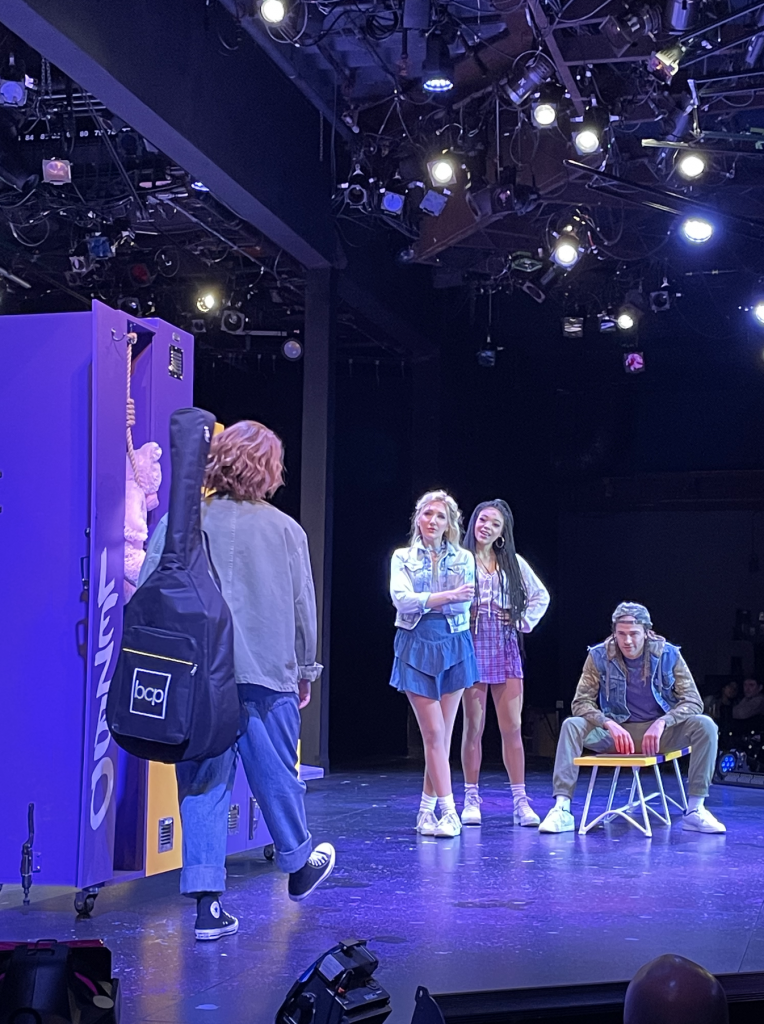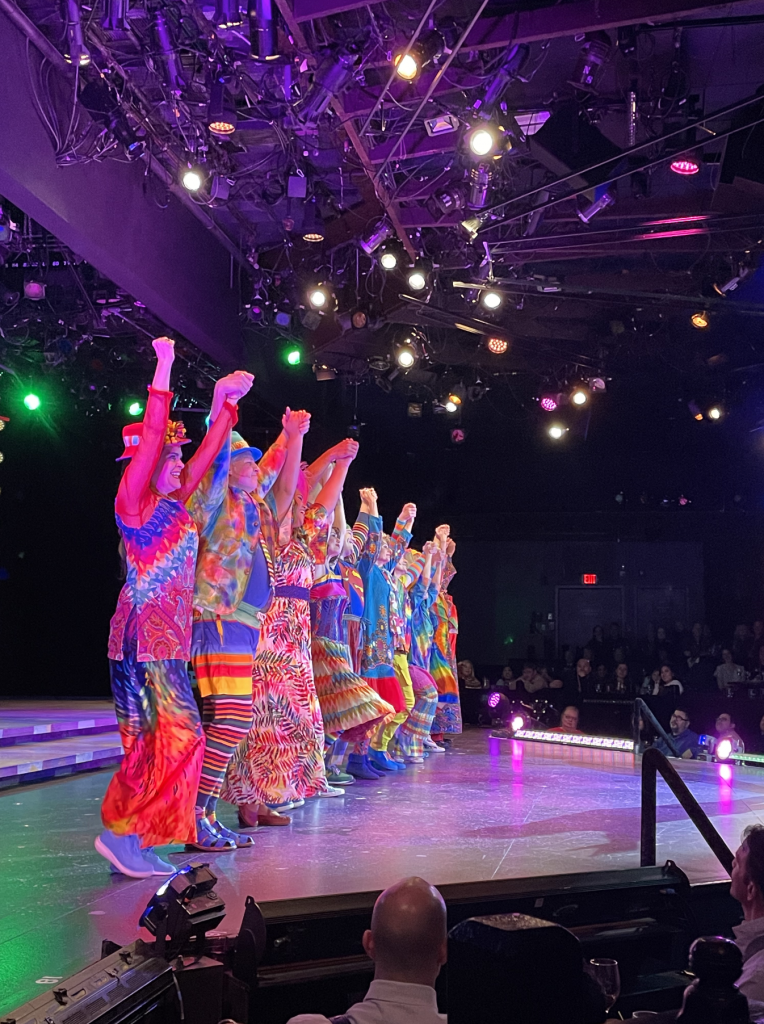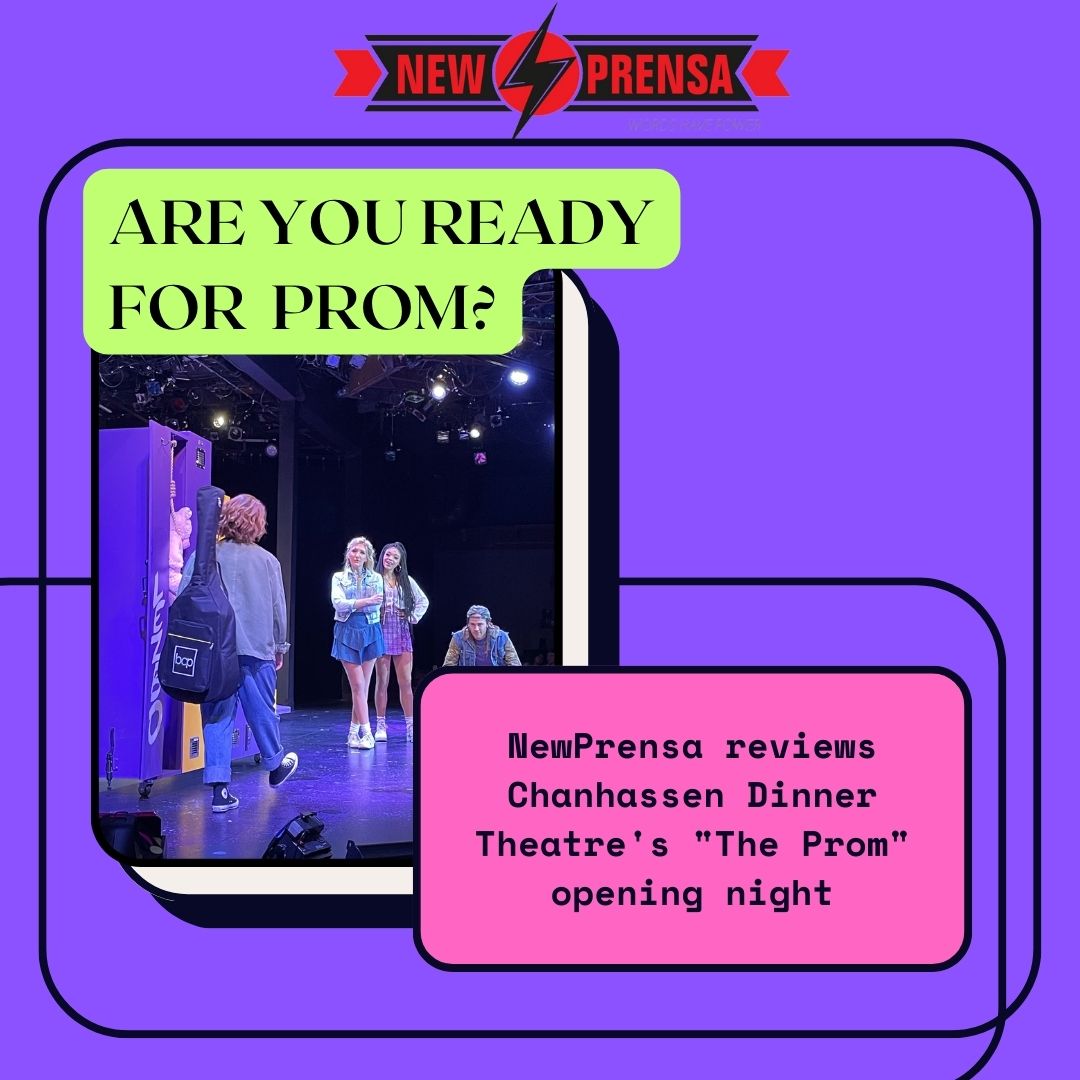

by Chris Alvarez and Ebe Morales
An explosion of noise and jazzy music erupts from the enormous speakers near the stage of the Chanhassen Dinner Theater. The audience bursts out into applause and cheers as if they were part of a game show. Nancy Nelson walks out in a full red, sequin suit and welcomes us with a charismatic smile and outstretched arms. She is full of personality and enthusiasm as she banters with the crowd, like a stand-up comedian. After explaining the history of the theater and giving a few special shout-outs to members of the audience, with a sweep of her arm, Nancy introduces the show and the lights go dim.
Prom is arguably one of the biggest events of the season for high schoolers everywhere. It’s a night where teenagers can let loose, have fun with friends, and if they are lucky, maybe share an intimate slow dance with their date. Traditionally – and more increasingly since we were in high school – students meticulously plan the most genius way to ask their crush or partner to be their date. Promposals are an opportunity for teens to openly show their admiration, but for people like Emma, the main character of The Prom, asking their partner of the same sex to prom can sometimes prove to be a challenging feat.
The Prom follows Emma, a senior in high school in the conservative town of Edgewater, Indiana as her school cancels prom because she wants to take her girlfriend and wear a tuxedo. In retaliation to the unjust decision taken by the school board, a group of washed-up broadway stars travel to the town and stir up a commotion as they try to help out their new “little lesbian” friend and, with the hopes of making headlines, boost their careers in return. It’s a fantastically colorful and heartwarming story filled with musical numbers, laughs, satire, and social commentary.
From the synopsis itself, it’s not hard to deduce that one of the main themes of the show is redefining heteronormative social standards and the acceptance of same-sex couples. Additionally, the show satirically tackles performative activism and how celebrities can use it for personal gain through overly colorful costumes and characters as well as campy musical numbers. Songs like “The Acceptance Song” and “Unruly Heart” are clad with rainbow colors and on-the-nose lyrics about embracing one another’s differences, which, had the show not heavily leaned into the absurdity of it all, would be viewed as corny in the eyes of a critical audience. In “I Just Wanna Dance With You,” the less widely represented theme of how some people don’t want their identities to be part of a political statement is presented. Being part of the LGBTQ community ourselves, this is something we appreciated.
In focusing on these themes, the audience is able to empathize with the characters and their struggles. While this is one of the show’s strengths, it also serves as its Achilles heel in some moments. In the show’s first act, when Emma first hears Barry, Trent, Angie, and Dee Dee’s idea to tell her story, she clearly states that she is more than her lesbian identity. This moment speaks to the fact that people within the LGBTQ+ community are not comfortable being tokenized. Although the interaction suggests that the play will work towards giving us a nuanced character and perspective, it falls short of it. The show steers away from proving why Emma is more than her lesbian identity and instead embraces the butch persona stereotype often associated with lesbians.
To the same point, rather than developing Emma as a dynamic character or giving her a song to highlight who she is as a person, she sings about the overall struggle of the queer community. Alyssa, her girlfriend, is given a solo number, not only detailing her internalized homophobia but the many pressures of living up to her mother’s expectations. This creative decision makes Emma feel like a cardboard cutout rather than a full-fledged character with interests, hobbies, and a compelling backstory.
As far as the performances from the cast, we may as well have been watching a Broadway show in the flesh! Despite the lack of character depth and stereotypical presentation, Monty Hays was perfectly cast to play the part of Emma. His rich and sharp vocals belting from his small frame filled the room with every note, beautiful enough to bring a tear to a glass eye.
The crew of washed-up broadway stars was also just as believably cringy as any name-list washed-up celebrity that everyone loves to hate (ahem, James Corden). From the secondary to background characters, whether they were singing a number in a group or mimicking a conversation in the background, everyone played their part with such passionate dedication that it seemed like you were truly observing a world in its own right in front of you.
Although The Prom might not be perfect in its representation of the LGBTQ+, it’s another example of the kind of stories that can be told in the mainstream media, if given the opportunity.

We’re Communications Specialists by day
and spending time at the theatre by night!
Do you enjoy reading NewPrensa?
Forward it to someone you think may enjoy it too!
Got suggestions, feedback, or a good scoop?
Send it to us at newprensa@newpublica.com
If someone sent this newsletter your way, feel free to subscribe to get local, BIPOC news delivered to your inbox every Thursday morning.



